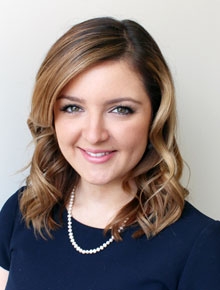Paige MacPherson
– Associate Director, Education Policy
Paige MacPherson is Associate Director of Education Policy for the Fraser Institute. For many years, Paige has contributed policy analysis and commentary to major media outlets and research organizations across Canada, focusing on education policy, fiscal policy and government accountability. She holds a Master of Public Policy from the University of Calgary School of Public Policy and a BA from Dalhousie University. Prior to joining the Fraser Institute, Paige was Alberta Director and Atlantic Director for the Canadian Taxpayers Federation, TV host and politics reporter with Sun Media and provided communications for the Atlantic Institute for Market Studies, where she founded a post-secondary student outreach program. Paige’s work has taken her from coast-to-coast-to-coast.




